
Apple has finally released iOS 15.4 to all users. With this software update, the company is letting users unlock their iPhones with Face ID while wearing a mask. Here’s everything you need to know about this feature.
Just after you update your iPhone to iOS 15.4, a new prompt screen will appear explaining the new “Use Face ID with a mask” feature. Even though Apple actively gives users this new option, the company let its customers know that Face ID is most secure wi5 full-face recognition only:
“Face ID is most accurate when it’s set up for full-face recognition only. To use Face ID while wearing a mask, iPhone can recognize the unique features around the eye to authenticate.”
How Face ID with a mask works? What’s the difference between Apple Watch unlock and this new feature?
With iOS 15.4, users are able to use Face ID with a mask. As Apple explains, the TrueDepth system tries to “recognize the unique features around the eye to authenticate” your face. With the Apple Watch unlock, on the other hand, the TrueDepth system only searches for the mask. So, if the system gets the mask and the user is wearing an Apple Watch, the iPhone is automatically unlocked.
This is why Apple brings users the ability to lock the iPhone using the Apple Watch to avoid unintended false authentications.
Face ID with mask works with Apple Pay and third-party apps
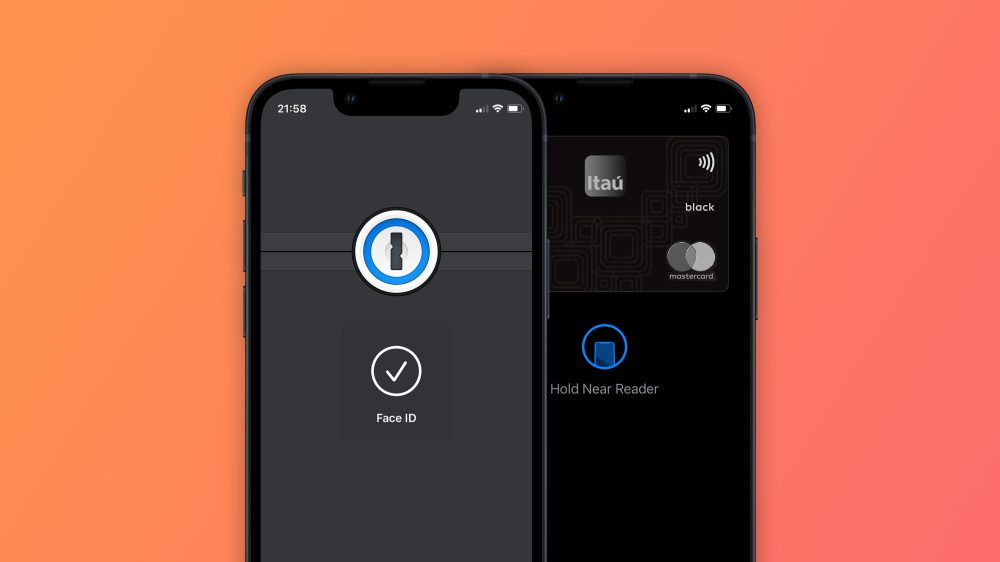
As explained above, since the TrueDepth system is actively scanning your face, Apple allows Face ID to authenticate third-party apps access and even Apple Pay usage.
If you are used to unlocking your iPhone while wearing a mask with Apple Watch, you know that it’s not possible to open a bank app, WhatsApp, and other applications that use facial recognition authentication.
Now, with iOS 15.4 and this new feature, you can use your iPhone as you weren’t wearing a mask.
Face ID also works with glasses and a mask, but not sunglasses
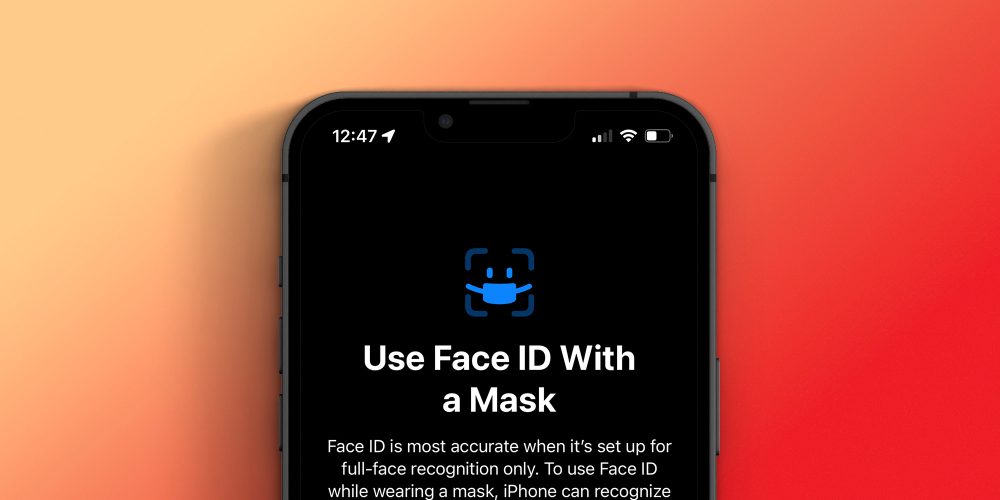
Not only Apple is making it possible to use facial recognition with a mask, but it’s also improving Face ID with glasses. The company explains:
“Using Face ID while wearing a mask works best when it’s set up to recognize each pair of glasses you wear regularly. Face ID with a mask doesn’t support sunglasses.”
Since setting up facial recognition with a mask requires the TrueDepth system to analyze only your eye area, it wouldn’t make sense if this part is covered with sunglasses. This feature is available after you set up facial recognition with a mask.
Device compatibility: iPhone, Apple Watch, and iPad
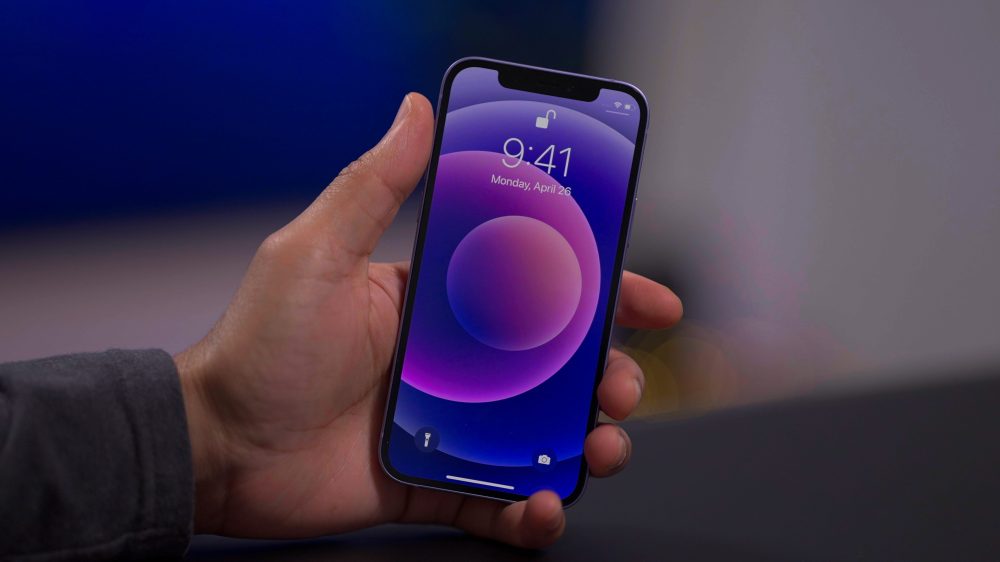
To use Face ID with a mask users don’t need an Apple Watch, but there’s a catch with device compatibility as Apple is only bringing this feature to iPhone 12 users or newer. The company doesn’t explain why, but iPhone X, XR, XS, and 11 owners won’t be able to take advantage of this function.
With iOS 15.4, here are the users that can use Face ID with a mask:
- iPhone 12, iPhone 12 Pro;
- iPhone 13, iPhone 13 Pro.
For those who have a 2018 iPad Pro or M1 iPad Pro, I’m sorry to inform that iPadOS 15.4 doesn’t add any changes to how Face ID works on its tablets, which means no improvements regarding wearing glasses or a mask.
In the same way the company doesn’t let you unlock your iPad Pro with the Apple Watch, you also can’t take advantage of this iOS 15.4 feature on your iPad.
How to use Face ID with a mask?
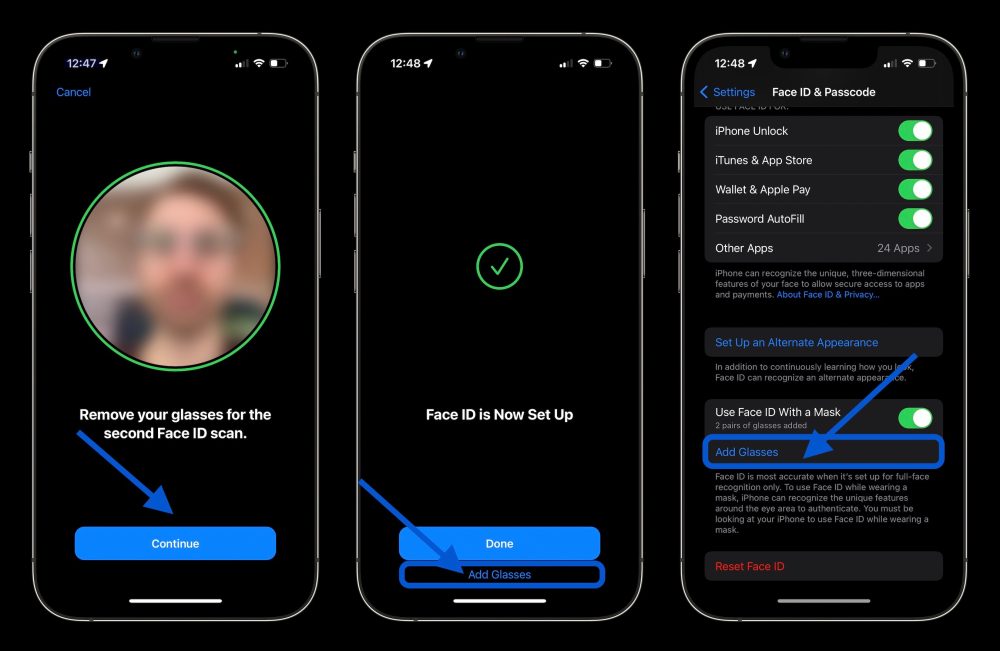
- After first installing iOS 15.4, you’ll see a splash screen to set up Face ID With a Mask on iPhone 12 or 13
- If you initially chose “Set Up Later,” head to Settings > Face ID & Passcode > Use Face ID With a Mask to get back to the feature and toggle it on
- Follow the prompts to re-register your face to use with a mask
- If you’re wearing glasses for the first scan, iOS will ask you to remove them for the second
- If you’re not currently wearing glasses but do sometimes, you’ll see Add Glasses button after getting the feature set up.
Here’s our full how-to post about this new feature with other tips.
When iOS 15.4 will be available to all users?
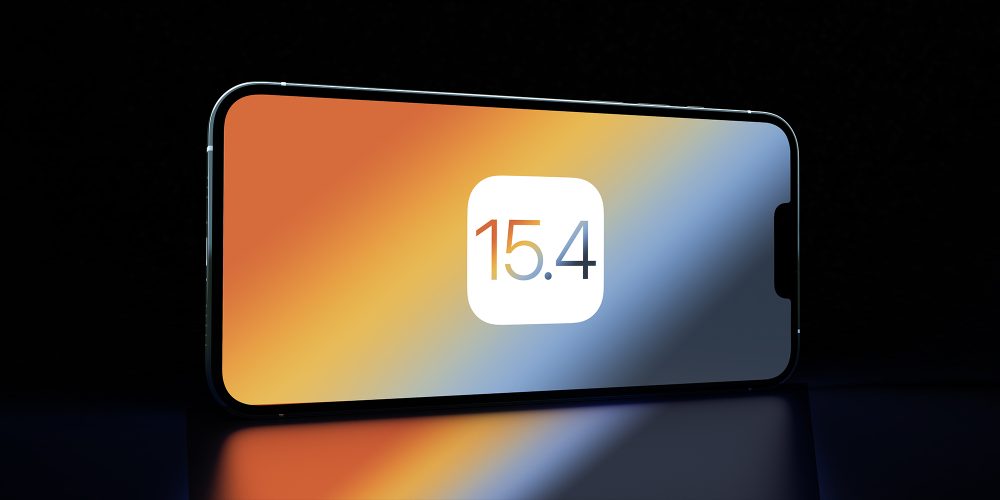
iOS 15.4 is now available to all users. iPad and Mac users can also take advantage of another great feature: Universal Control. UC was first previewed during WWDC21 and it’s now available to everyone as well.
Do you still have questions about this feature? Share your thoughts in the comment section below.
Read more:
Author: José Adorno
Source: 9TO5Google



